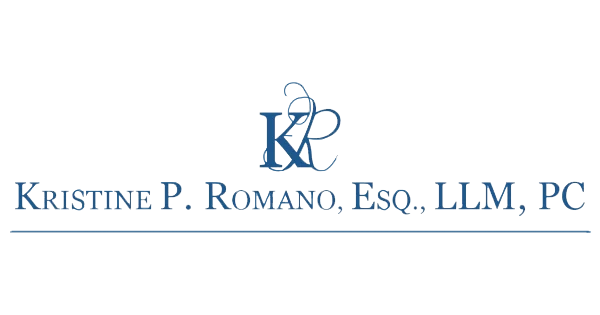What Happens to My Spouse’s Debts at Their Death?
Losing your spouse is one of the most emotionally difficult moments in life. On top of the grief, you may also find yourself faced with complicated financial matters—especially when it comes to their debts. Knowing what to expect and how to handle it can ease some of the stress during this painful time.
What Happens to Debts After a Spouse’s Death?
When your spouse passes away, their debts don’t simply disappear. But in most cases, those debts are paid from their estate, not from your personal finances.
The estate includes everything your spouse owned individually, such as bank accounts, property, life insurance, and personal items, unless these assets are held jointly with the surviving spouse or have named beneficiaries. During probate, the estate is inventoried, and debts are paid before any remaining assets are distributed to beneficiaries. If the estate’s assets are insufficient to cover the debts, some creditors may go unpaid, depending on state laws and the type of debt involved.
You Are Not Automatically Responsible for Their Debts
Unless you co-signed a loan or held a joint account, you’re generally not personally liable for your spouse’s debts in Massachusetts. (Unlike some “community property” states, Massachusetts does not automatically assign a spouse’s debt to the surviving partner.) However, some exceptions apply—especially with joint credit cards, medical bills, or mortgages. This is why working with a local estate planning attorney is key.
Types of Debts and How to Manage Them
There are four overall different types of debts to consider when going through probate. These include secured debts, unsecured debts, medical debt and student loan debt.
Secured Debts
Secured debts, such as mortgages or car loans, are tied to specific assets. If the estate cannot cover these debts, creditors may repossess or foreclose on the associated property. If your spouse had a secured debt like a mortgage or car loan, you’ll likely need to:
- Continue payments to keep the asset
- Refinance into your name if you plan to keep the home or car
- Sell the property if keeping it is no longer practical
Unsecured Debts
Unsecured debts, including credit cards and personal loans, are paid from the estate’s liquid assets. If the estate lacks sufficient funds, these debts may go unpaid, creditors generally cannot come after you for the balance.
Medical Debt
Medical debt is treated similarly to unsecured debt and is paid from the estate’s assets. However, if your spouse received MassHealth (Medicaid) benefits, federal and state Medicaid law requires MassHealth to recover assets from the estates of certain MassHealth members after their death.
Our experienced elder law attorneys can help you understand whether this applies.
Student Loans
Federal student loans are generally discharged upon the borrower’s death, meaning they do not need to be repaid. Private student loans, however, may follow different rules, and some lenders may attempt to collect from the estate or a co-signer.
Important Financial Tasks to Tackle
Here’s a checklist of key steps to help you move forward after your spouse’s death:
1. Review and Pay Immediate Bills
Check how utilities, credit cards, and other expenses are being paid. Joint accounts may still be active, but individual accounts will likely need to be closed.
2. Notify Key Parties
Let Social Security, your spouse’s employer, and financial institutions know of the passing. There may be survivor benefits, life insurance policies, or retirement accounts to claim.
3. Work Through the Probate Process
If your spouse had a will, many assets will pass through probate, unless they were held jointly or had designated beneficiaries. Probate is where debts are addressed and assets are transferred legally.
4. File Taxes
You may need to file a final joint tax return for the year of your spouse's death. Some estates may also require a separate estate tax return. Our estate planning attorneys can guide you based on your unique circumstances.
5. Consider Your Housing and Financial Options
Without your spouse’s income, it may be time to revisit your budget, insurance, and estate plan. You might consider downsizing, refinancing, or adjusting your retirement strategy.
Protecting Your Future with Proactive Planning
Dealing with a loved one’s debts can be emotionally and financially challenging. Taking proactive steps by working with an experienced estate planning attorney and communicating openly with creditors, can help you manage the process effectively.
Planning ahead is equally important. By creating a clear estate plan, including an inventory of debts and assets, before death can prevent confusion and ease the burden on family members after their passing. Contact Kristine Romano Law for compassionate guidance and help navigating a death or to create a plan tailored to meet your family's needs.
Key Takeaways
- Estate Responsibility: Debts are typically paid from the estate’s assets, not directly by spouses or heirs, unless they co-signed loans or reside in community property states.
- Secured vs. Unsecured Debts: Secured debts may require repayment to retain assets, while unsecured debts are addressed based on estate liquidity.
- Medical and Student Loans: Federal student loans are discharged at death. However, Medicaid or private loans may still seek recovery from the estate.
- Avoid Personal Liability: Heirs should not assume responsibility for debts without legal obligation and can negotiate with creditors through the estate.
- Proactive Planning: A clear estate plan with a debt inventory can prevent confusion and streamline estate administration for loved ones.


Ready to Plan for Tomorrow?
Feel Free to Reach Out and Let Us Help You Secure Your Future.
Contact Us
We will get back to you as soon as possible
Please try again later
Our Offices
Northborough Office
Natick Office
209 W. Central Street Suite 218
Natick, MA 01760
All Rights Reserved | Kristine Romano Law | Privacy Policy | Terms of Use








